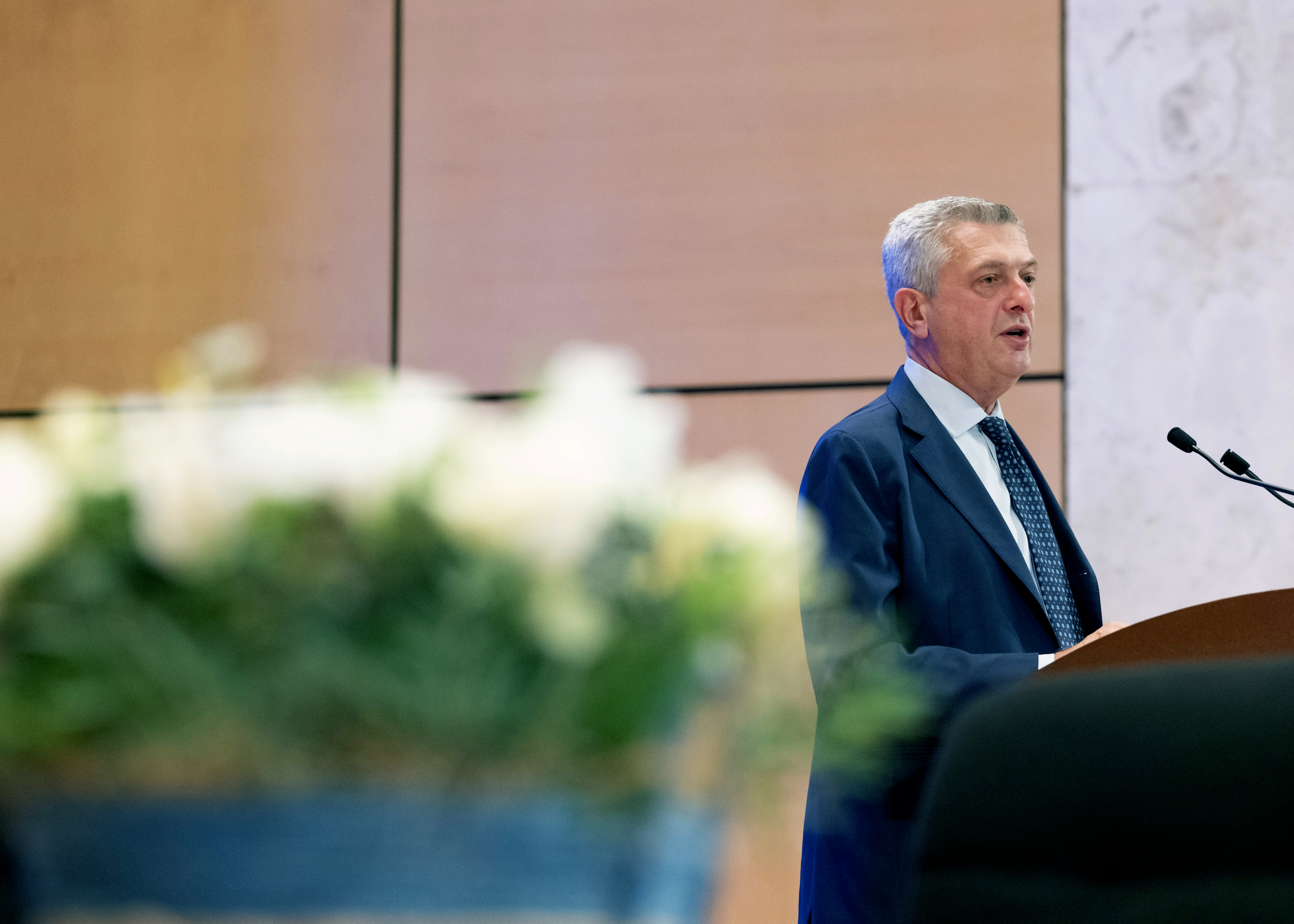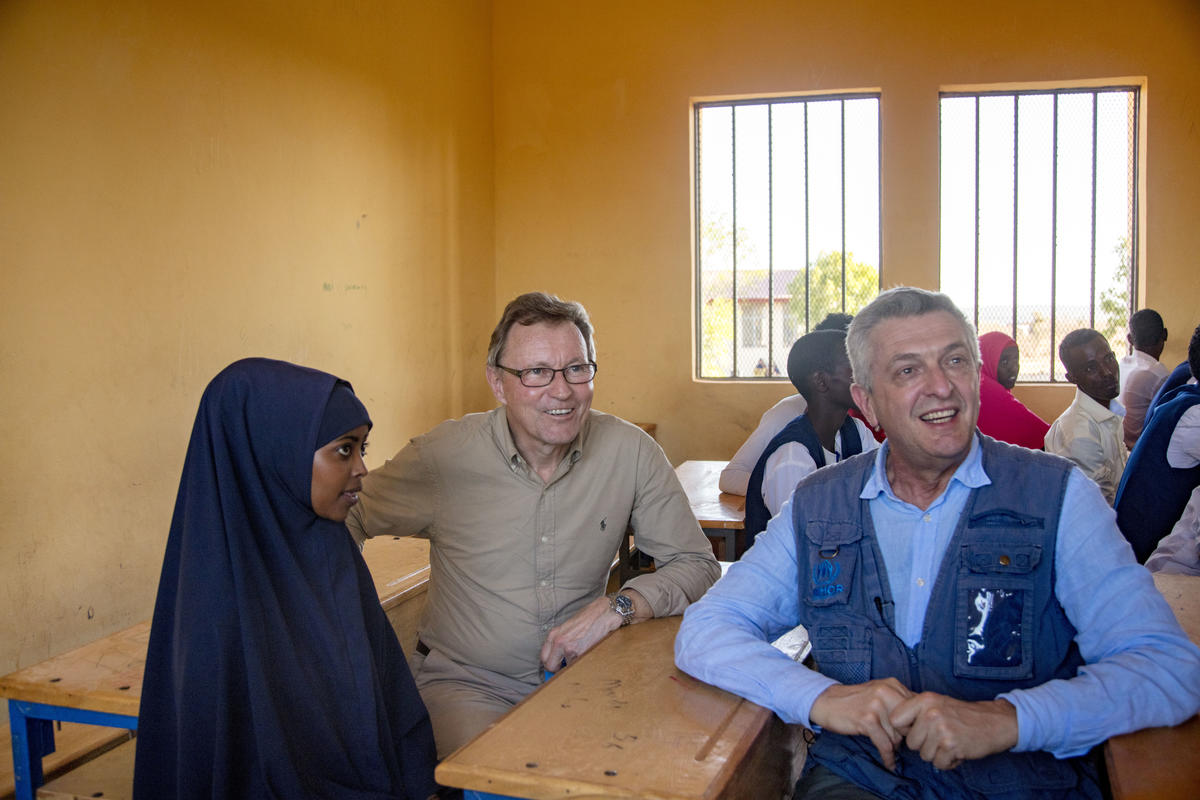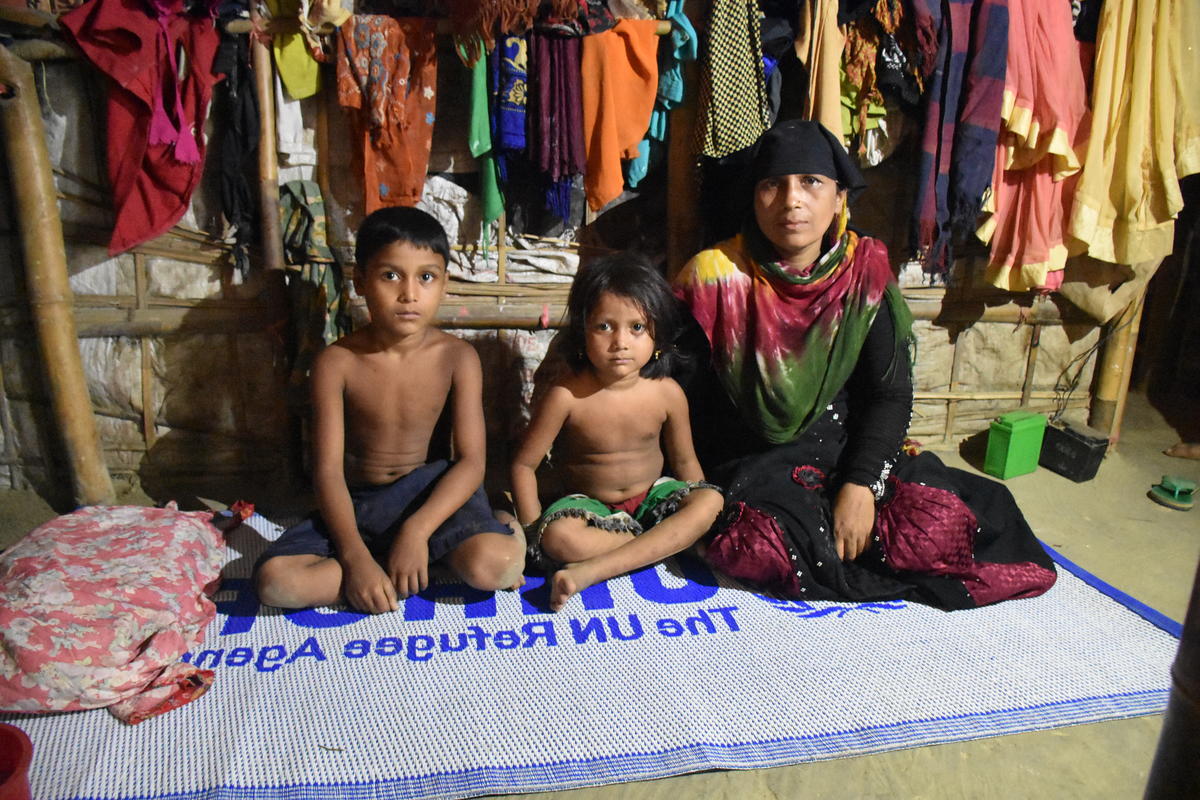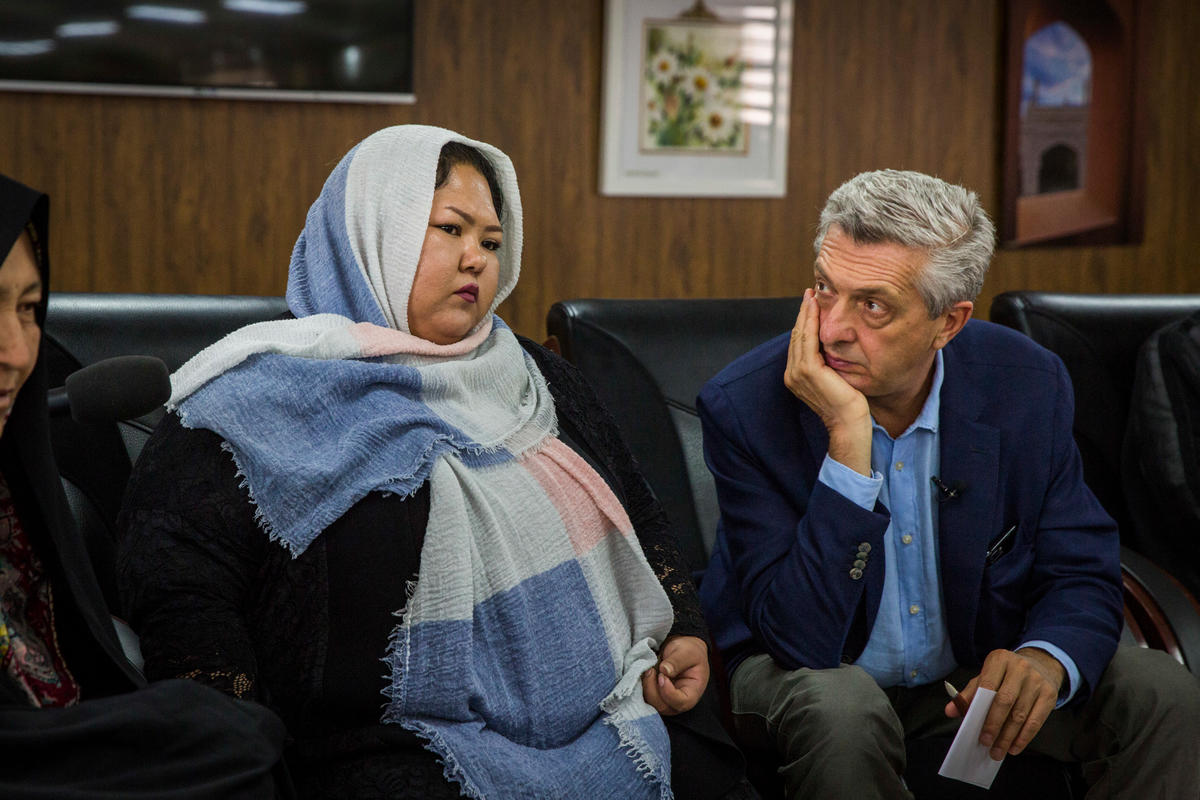Afghan refugees share hopes and fears with UN refugee and relief chiefs
Afghan refugees share hopes and fears with UN refugee and relief chiefs

UN High Commissioner for Refugees Filippo Grandi has concluded a visit to Pakistan with UN Emergency Relief Coordinator Mark Lowcock to shine a light on the Afghan refugee situation, recognize Pakistan’s generosity and explore solutions that could eventually help millions of Afghan refugees voluntarily return home. Pakistan hosts 1.4 million Afghan refugees, of whom 74 per cent are second or third generation, meaning they were born in Pakistan or are the children of refugees born there.
In a meeting with Prime Minister Imran Khan, Grandi and Lowcock expressed their gratitude to the people and government of Pakistan for generously hosting one of the world’s largest refugee populations for nearly 40 years. Khan, in turn, affirmed his government’s commitment to ensuring that refugee repatriation remains voluntary.
“Pakistan has been host to millions of Afghan refugees for almost four decades – one of the longest refugee situations in the world,” Grandi said, noting that the security situation back home is the main worry of majority of refugees and is preventing their voluntary return. He and Lowcock began their joint mission in Afghanistan and were able to convey to refugees their impression that the new policies of the government there, if implemented, would improve infrastructure, attract investment and development support, and allocate land for returning refugees.
In the meantime, Grandi and Lowcock stressed the need for the international community to provide greater support to unstable areas and communities hosting large numbers of refugees in Pakistan. “There is a major opportunity now to help the people of the tribal districts to improve their lives,” said Lowcock. “The international community must do all it can to support the government in this.”

The UNHCR chief spent time hearing the concerns of refugees in Islamabad and also at a UNHCR voluntary repatriation centre in Peshawar, where he met refugees who had made the difficult decision to return home. The centre provides them assistance to deregister as refugees and obtain the proper documents that will allow them to repatriate and receive a US$200 cash grant for transport, shelter and food once they arrive in Afghanistan.
So far this year, UNHCR has facilitated the voluntary repatriation of almost 10,000 Afghan refugees, including some families who have lived in Pakistan for close to 40 years. Due to the deteriorating security situation in Afghanistan, the number of refugees choosing to go home has declined this year and remains a relatively small number overall in proportion to the 1.4 million refugees who remain in Pakistan.

Mulan Birdi told the High Commissioner how he fled from Afghanistan when the Soviets invaded in 1979. “I am sick, in eyes and body, so I want to go home to Afghanistan,” he said. Members of his family have gone ahead, and he is preparing to return to the Afghan province of Faryab with his son, who hopes to find work there as a labourer. Mulan is hopeful that Afghanistan will be rebuilt, and that there will be peace, security and a better future.
Abdul and Shazia Razi have decided to return to Afghanistan with their four daughters, who were all born in Pakistan. “I am very happy to go back to Afghanistan because we are going home to our own country,” Abdul explained. “My girls already have their school admission. I am uneducated, so I know the value of education, and I want to give that to my children.”
Another Afghan elder, 85-year-old Khan Muhammad, is also making plans to return home after many years in Pakistan. Khan said he wants to live with his relatives in Afghanistan and thinks they will have the basics they need to survive. His son, Sorkhord Muhammad, said it was a difficult decision: “It’s not easy to go home. We will miss Pakistan. We were born here.”
Abdul Maroof told Grandi that he and his wife had lived in Pakistan for 34 years, and his children were all born there. “I fled the war when I was 10 years old, to escape the fighting. Now it is more peaceful in Afghanistan. We are sad to leave Pakistan, but we are also happy to go back. There will be challenges there, but it’s the sacrifice we want to make to go home.”
In a joint press conference at the voluntary repatriation centre, Grandi stressed that returns to Afghanistan must be voluntary, adding that “Pakistan has never forced people to go back and I’m grateful for that. But we need to create the conditions for return.” He appealed to the international community to provide more resources, and above all, political attention to help Afghans restore peace in their country.
“We owe it to young Afghans to support them in going back and rebuilding Afghanistan into a peaceful and prosperous country. We have to resolve the violence. We have to hope for a more stable period and then we have to invest into Afghanistan,” Grandi said, reiterating that the solution lies in improving security in Afghanistan. “I met young refugees here – many of them want to go back, but they’re afraid. They know war brings poverty, lack of jobs, low skills.”
“We need to take these stories out to the world and remind people that there is an opportunity to make progress and solutions,” said Lowcock. “We need to do more than simply address the symptoms. If we’re a little patient it is possible to make progress.”
Joining Grandi and Lowcock at the centre was Pakistani actor Mahira Khan, an advocate for UNHCR and for Afghan refugees in Pakistan. “I have learnt a lot, heard heartbreaking stories, those full of hope and bravery,” said Khan, who is intent on promoting the needs of youth. “I am honoured to be associated with UNHCR to highlight the Afghan refugee situation in Pakistan, more than half of which are children.”

Youth make up two-thirds of the Afghan refugee population in Pakistan, and Grandi emphasized the importance of providing education and skills training to empower young refugees, so they can contribute to their host communities while in Pakistan – and help rebuild their country when they one day return home to Afghanistan.
He visited the Construction Technology Training Institute in Islamabad, where UNHCR has enrolled 40 students, including 15 refugees. The breakthrough initiative includes a six-month vocational and technical skills training course in the automobile and heavy machinery trades. During a graduation ceremony for the students, Grandi said, “Projects such as these will have a real impact and enable Pakistani and Afghan youth to play a positive role in the future of their countries.”
A visit to the Shaukat Khanum Memorial Cancer Hospital in Peshawar offered an example of international solidarity. The UN Refugee Agency has provided high-tech radiotherapy machines worth Rs.710 million (US$6.2 million) to the hospital to provide free treatment to refugees and the host community alike. “Hospitals like this are a symbol of hope for thousands of cancer patients who have little resources,” Grandi said.












